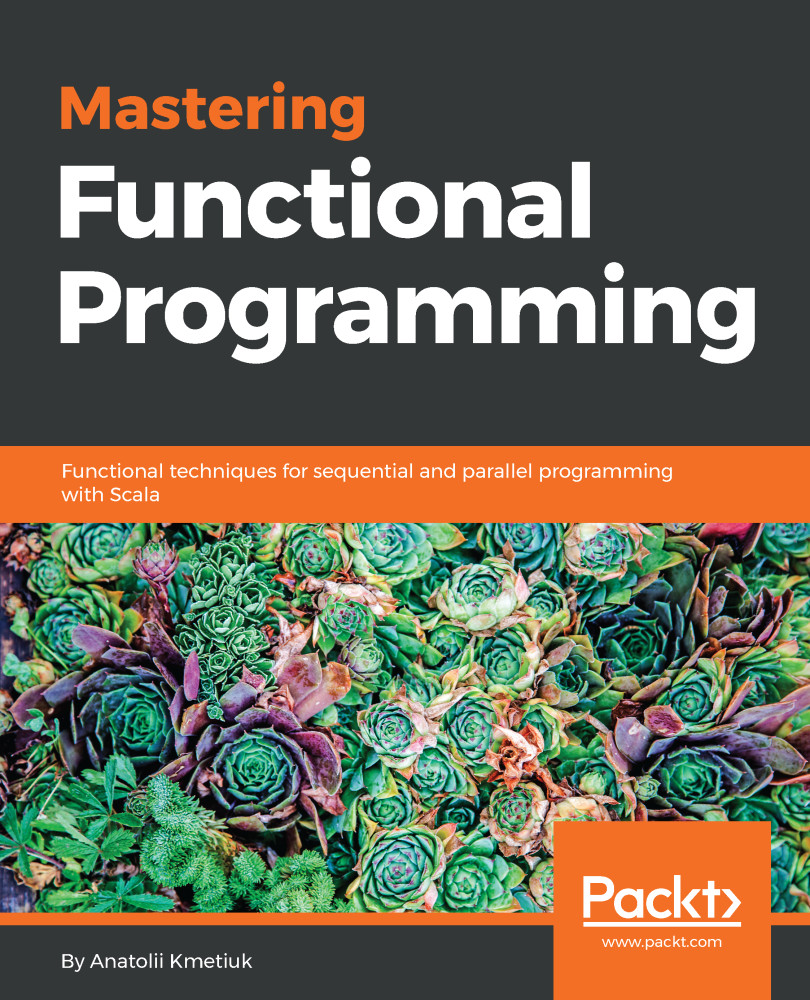Either is an effect that is similar to the Try effect that we encountered in the previous chapters.
If you remember, Try is a structure that can contain either of two values—an exception, or the result of the computation. Let's briefly recall our division by zero example from the previous chapters:
def functionalDivision(n1: Double, n2: Double): Try[Double] =
if (n2 == 0) Failure(new RuntimeException("Division by zero!"))
else Success(n1 / n2)
Here, in the case of success, we create a Success data structure. In case of failure, we need to create an exception with a specific error message.
Is it essential to create an exception here? The useful payload is the error message, after all. Exceptions are needed in cases where they are thrown with the throw statement. However, as we discussed in previous chapters, functional programming avoids such a side...


